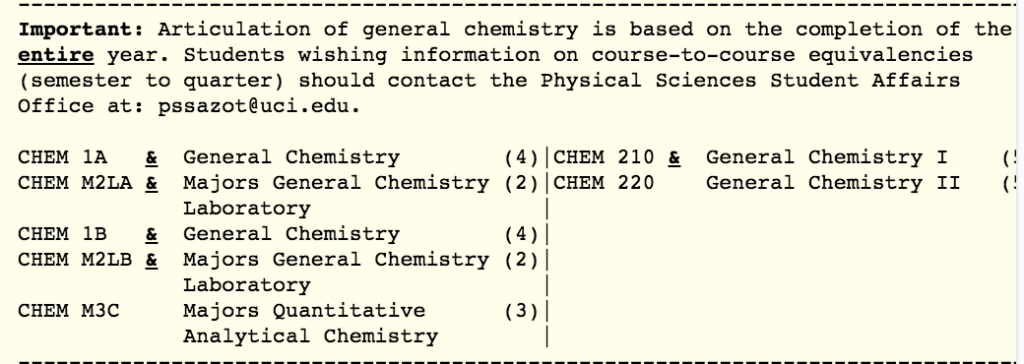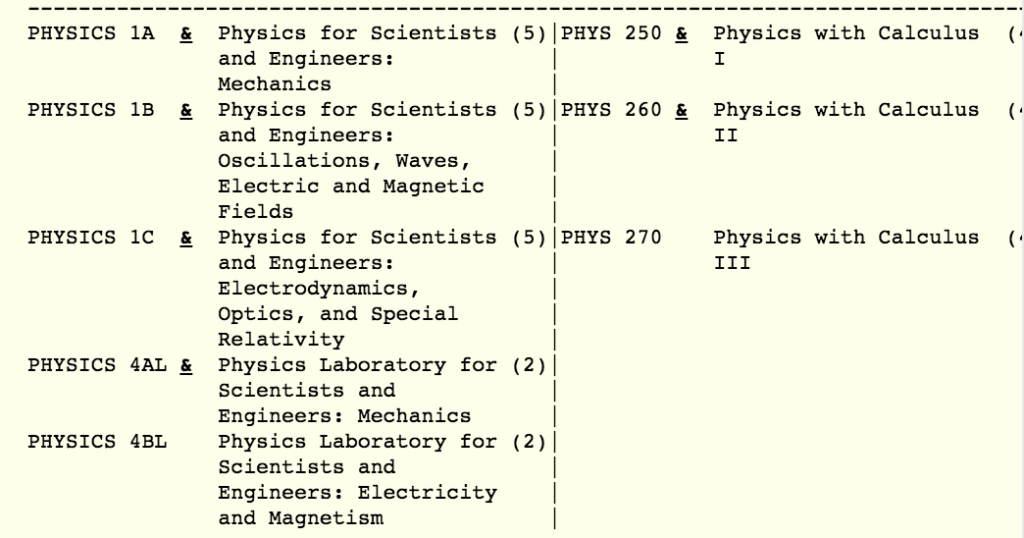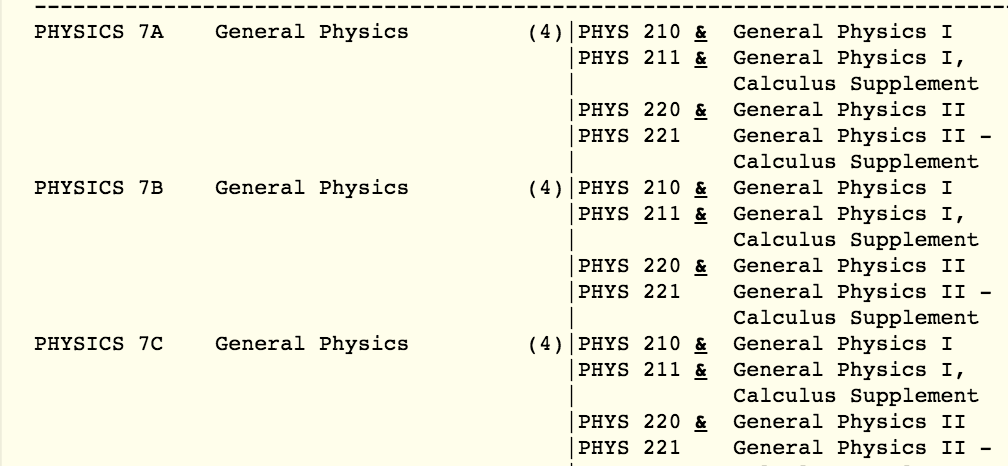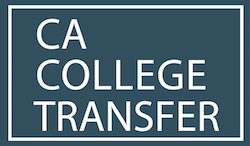4 Examples of Splitting a Course Series as a UC Transfer Applicant
I want to address as best I can, without getting too complicated, the optimal ways of figuring out how to split a course series or handle course sequencing required for transfer to a UC.
When you are perusing assist.org looking for courses that fulfill UC major requirements, it’s often confusing when the requirements list a series or sequence. Can you split the courses among other colleges or must the entire sequence be taken at one college? The answer is not clear-cut and depends on the wording. It is crucial to read the rules correctly or you could lose units or be out of sequence (also resulting in the loss of units).
Let’s break it down with four examples:
- You’re hoping to major in Economics and need the equivalent of Econ 1 (Micro) and Econ 2 (Macro). However, you took Econ 1 at a previous college.
- You are taking general chemistry and plan to split the year-long series between two or more colleges.
- You took your first required English composition course at one California community college (CCC) and plan to take the second course at a new CCC.
- You took the first two Physics for Scientists and Engineers courses (in a three-part series) at a previous college and plan to take the last course at a new CCC.
1. Economics example
Using UCLA as an example, below, you will note that for the Econ major it breaks the courses into two discrete categories, divided by a line. This means the courses are separate and can be taken at different colleges as long as they are deemed a match. The reason I say as long as they are deemed a match is because assist only lists articulations (matches) from CCC to UC. If you are at a non-CCC you need verification that the UC will see your course as a match, although in the instance of Econ, the courses usually are standardized, assuming the course is 3 semester/4 quarter units.

Now, let’s assume your major, whatever it is, has this listed:

This above example is from Berkeley. What it means is that both courses Econ 100 and 102 are needed to fulfill Cal’s Econ 1. If you take only Econ 100 and then attempt to take the second Econ elsewhere you may possibly run into issues, although being as Econ is standardized, it will probably be all right. However, you definitely need to check with your CCC advisor. (The key to deciphering a series requirement is if the courses are in the same box.)
2. Chemistry example
UC Irvine lists this set of courses for the Chemistry major at College of San Mateo:

It then notes: Important: Articulation of general chemistry is based on the completion of the entire year. Students wishing information on course-to-course equivalencies should contact the department.
This generic wording — a sequence of courses that must be completed within an entire year –shows up occasionally in other majors. As these courses are in the same box, it is vitally important to check with the department and admissions because splitting the courses among colleges may not be accepted, or may lose you units.
3. English example
Another example of what you might find when exploring assist is what Berkeley’s Haas School of Business says regarding the two required English courses:
Here is a screenshot of what is listed for the College of San Mateo:

Of particular relevance is the note that says, “Do not assume that this sequence can be divided. Unless the R1A and R1B equivalents are separately specified, the entire sequence should be completed at this school.”
The problem will only arise if the two English courses are put into the same box, such as the example with Berkeley’s Econ. In the Haas example for the College of San Mateo, R1A is clearly fulfilled with English 100 or 105, and R1B is clearly fulfilled with English 110, so the warning does not apply, and the courses may be split between colleges (assuming the English courses are deemed a match with R1A or R1B).
4. Physics example
Physics for Scientists and Engineers is divided into three parts. As noted below for Irvine and College of San Mateo, in this particular major, Physics 1A articulates to 250; 1B articulates to 260; and 1C articulates to 270. Although assist does not say the entire sequence needs to be taken at the same college, they are in the same box as a series. If you have a physics course completed elsewhere or plan to take one at another college, verify with an advisor that they will all match up. It should be okay.

Here is another example, which is more complicated. This is the General Physics series at UCLA and College of San Mateo:

You need four CSM courses to fulfill each of three UCLA courses. The fact that each UCLA course lists the entire four-course CSM sequence means there is substantial overlap in content. As you can imagine, splitting these up among other colleges will be very confusing. If this shows up on assist for your major (or any variation), you definitely need to talk with UC admissions and your advisor to determine your trajectory.
The above are just four examples.
There are many more but they all use the same principles. It is most important to understand how series and sequencing work. Any mistake can lead to one or more of the following:
- your not fulfilling a major requirement
- your losing units because you need to retake a course and are thus thrown out of sequence (sequences must be in order or you lose the out of sequence units)
- your getting rejected outright from a UC. (For instance, if the English courses are out of sequence and you are completing IGETC, you will not get full IGETC certification, only partial certification, and Berkeley’s College of Letters and Sciences requires full certification, if you choose the IGETC path.)
As always, I offer assistance if you need to go over any sequencing issues. Contact me here.



Can we split the calculus course series for the statistics major at UCLA?
On assist it says:
MATH 31A – Differential and Integral Calculus (4.00)
AND
MATH 31B – Integration and Infinite Series (4.00)
Are we allowed to take the Math 31A equivalent at one community college and take the MATH 31B equivalent at another community college?
Yes, as long as they match up as fulfilling whatever it says on assist.
My major is computer science, I would like to transfer to UC. I need to take 3 physics(1,2,3) classes.
Can I take this sequence in 2 sisters’ College? (IVC and saddleback are sisters college) I took Physic 1 at IVC and want to take Physic 2 at Saddleback. I asked counselors, who said it should be fine, but I am unsure.
Can you help me with that?
Thank you.
yes you can take at sister college.